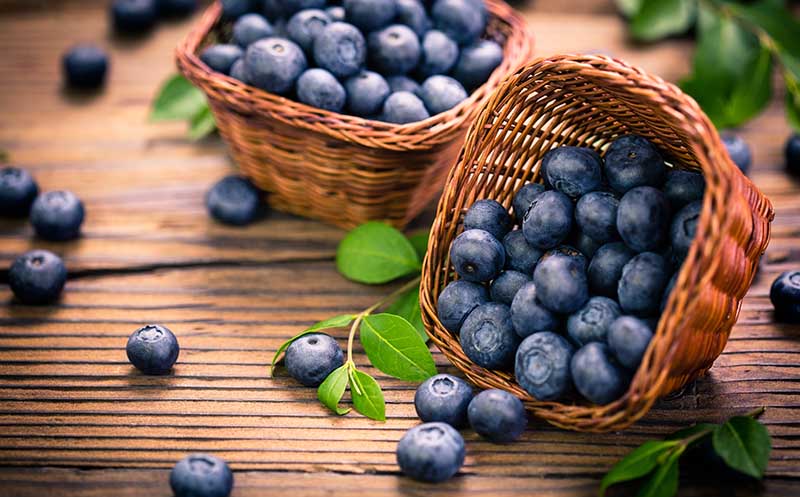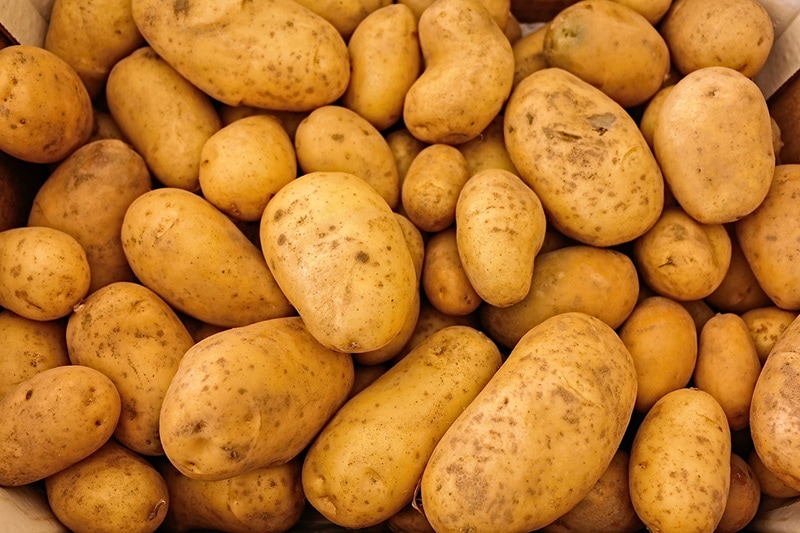Can Bearded Dragons Eat Mint Leaves? Vet-Reviewed Nutrition Facts & FAQ
Updated on
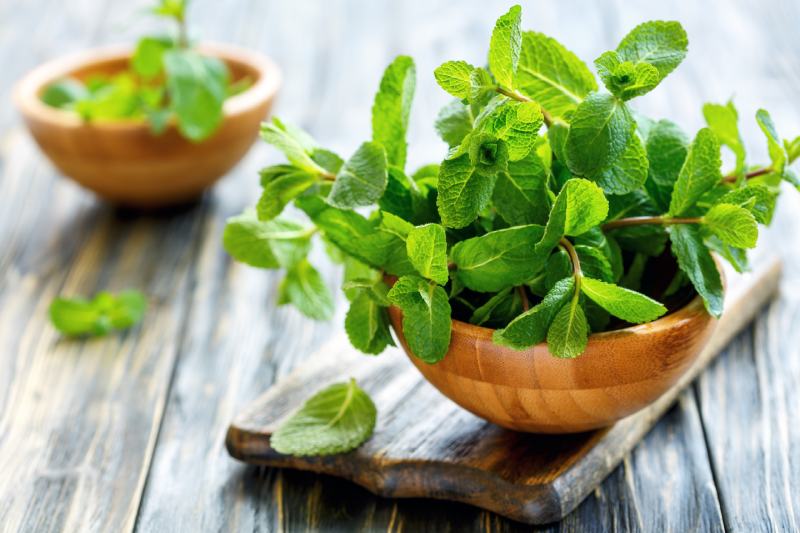
Click to Skip Ahead
Bearded dragons are great pets for first-time reptile owners because of their low-maintenance needs and social personalities. They’re non-picky omnivores that eat a lot of bugs as juveniles, growing to prefer plants as they age. If you’re an herb enthusiast, you may wonder if mint and other herbs are suitable to feed your beardie. Thankfully, mint is safe, if fed in moderation.
Mint isn’t that great for bearded dragons and shouldn’t be fed as a staple, but it can be a nice treat on occasion or sprinkled on food your beardie won’t eat. Read on as we break down the nutritional content of mint leaves, how it affects beardies, and other herbs that you may consider feeding instead.
Are Mint Leaves Healthy for Bearded Dragons?
Not really. Mint isn’t especially high in nutrients, containing about 80% water and some other trace nutrients like calcium, vitamin C, and iron. These are useful and even healthy, but combined with mint’s water content, it’s not worth offering the herb regularly. Too much water can upset their digestive systems, causing stomach upset and watery diarrhea.

What Other Herbs Can Bearded Dragons Eat?
While mint may not be the best herb for your bearded dragon, there are lots of other options you can choose from. The two main ingredients you need to watch out for are calcium and phosphorus. A 2-to-1 ratio is ideal, which you can achieve by mixing herbs into your beardie’s diet. Whether you’re growing them in your home already or need some decoration ideas for your beardie’s tank, the herbs below are prime candidates.
- Rosemary: A classic herb with a powerful flavor, your bearded dragon will love this calcium-rich herb.
- Cilantro: This popular taco topping is also valuable in a beardie’s diet, containing various trace vitamins and excellent calcium content.
- Basil: Basil has high calcium but not as much phosphorus as your beardie needs, making it best as an occasional treat.
- Thyme: Yet another herb with plenty of calcium and other trace nutrients, including antibacterial properties.
Herbs to Avoid Feeding Your Bearded Dragon
Not all herbs are created equally when it comes to nutritional content for bearded dragons. Some may be lacking in nutrients or even actively toxic to your beardie.
- Bay leaves: Great for soups and human foods only, bay leaves are part of the Laurel family and are toxic to bearded dragons.
- Dill: Dill is very acidic and high in oxalates.
- Allium species: Garlic, onions, and chives are all very high in acidic compounds that can upset your beardie’s delicate digestive system.
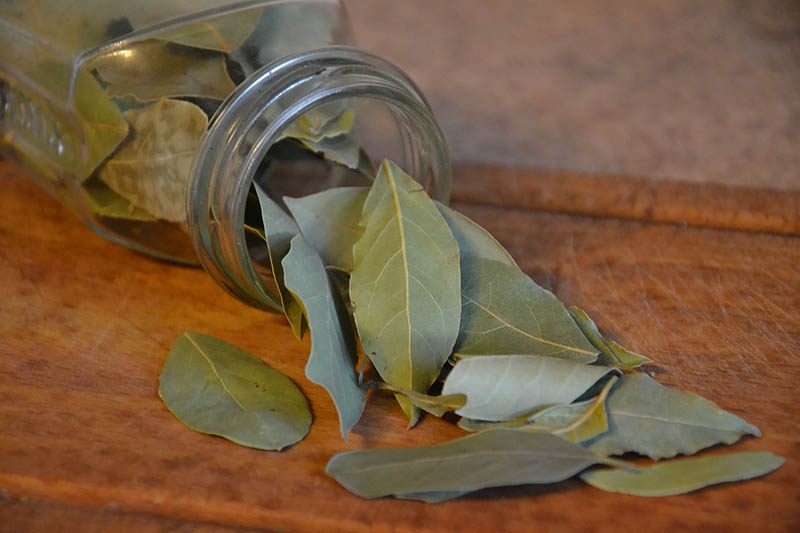
What Do Bearded Dragons Eat in the Wild?
A wild bearded dragon will eat whatever they can get, but they prefer live bugs like worms, crickets, locusts, and roaches. That doesn’t mean a beardie is averse to eating lots of plants, though. That includes leaves, herbs, fruits, vegetables, and pretty much any greenery available. Bearded dragons are considered opportunistic, meaning their diet may change depending on what food sources are nearby in their native environment.
Can You Grow Herbs in a Bearded Dragon’s Tank?
Yes, you can grow many of the same herbs you grow in your kitchen in your bearded dragon’s tank. Herbs are typically compatible with the humidity and light levels you host in your beardie’s habitat. As a word of warning, you’ll want to keep a closer eye on the tank’s humidity levels with a hygrometer.
Too many plants can make the tank too muggy for your bearded dragon, or on the flip side, you may find yourself misting the tank frequently to keep the plants healthy. We suggest slowly introducing plants and observing how the humidity in the tank changes before adding more. Another valuable tip is that herbs don’t last long in the sweltering heat of most terrariums, so you’ll have to swap them out with new plants pretty often.
That said, beardies love being surrounded by plants because it tickles the wild parts of their brain that are used for foraging. If you’re willing to keep up with maintaining them, they’re a very nice addition to any habitat.
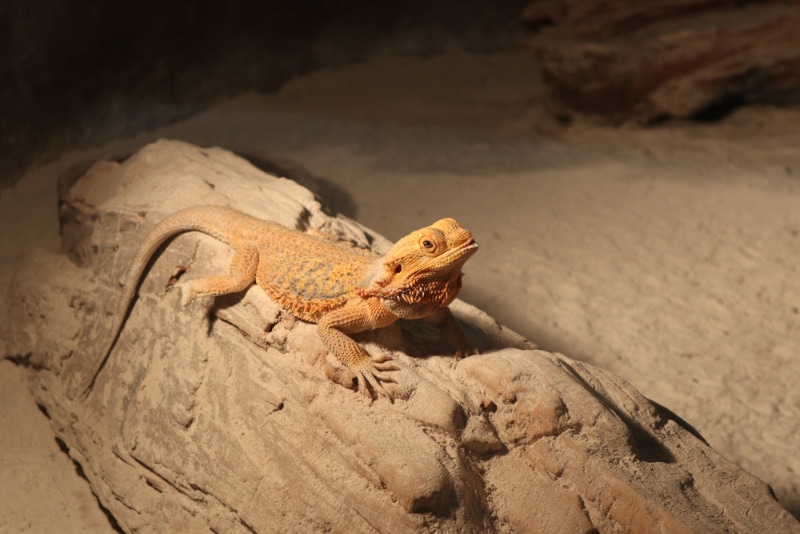
Tips for a Balanced Beardie Diet
Bearded dragons have some particular dietary needs that cat and dog owners might not totally understand yet. That’s okay because beardies are straightforward to take care of once you get a routine down. Let’s check out some essential tips for formulating a rock-solid feeding plan for your bearded dragon today.
- The best protein for your bearded dragon includes dubia roaches, mealworms, calcium-dusted crickets, and locusts.
- Until maturity at a year or two, your bearded dragon will prefer a bug-heavy diet with a lesser portion of leafy greens and other plants.
- Fully grown bearded dragons tend to prefer a diet composed 50/50 of bug protein and vegetables/plants.
- Only 10% or less of their diet should be fruit, which have vitamins and nutrients but little of the mineral content that beardies need, and are high in sugar.
Conclusion
Bearded dragons can eat a wide variety of herbs, but mint isn’t the best herb out there as far as nutrient content is concerned. Opt for herbs like rosemary, cilantro, and thyme, and be sure to rotate them out to maintain an interesting and diverse diet.
See Also:
- Can Bearded Dragons Eat Cactus? Vet-Approved Facts & FAQ
- Can Bearded Dragons Eat Dill? Vet-Approved Nutritional Facts & FAQ
Featured Image Credit: SMarina, Shutterstock


